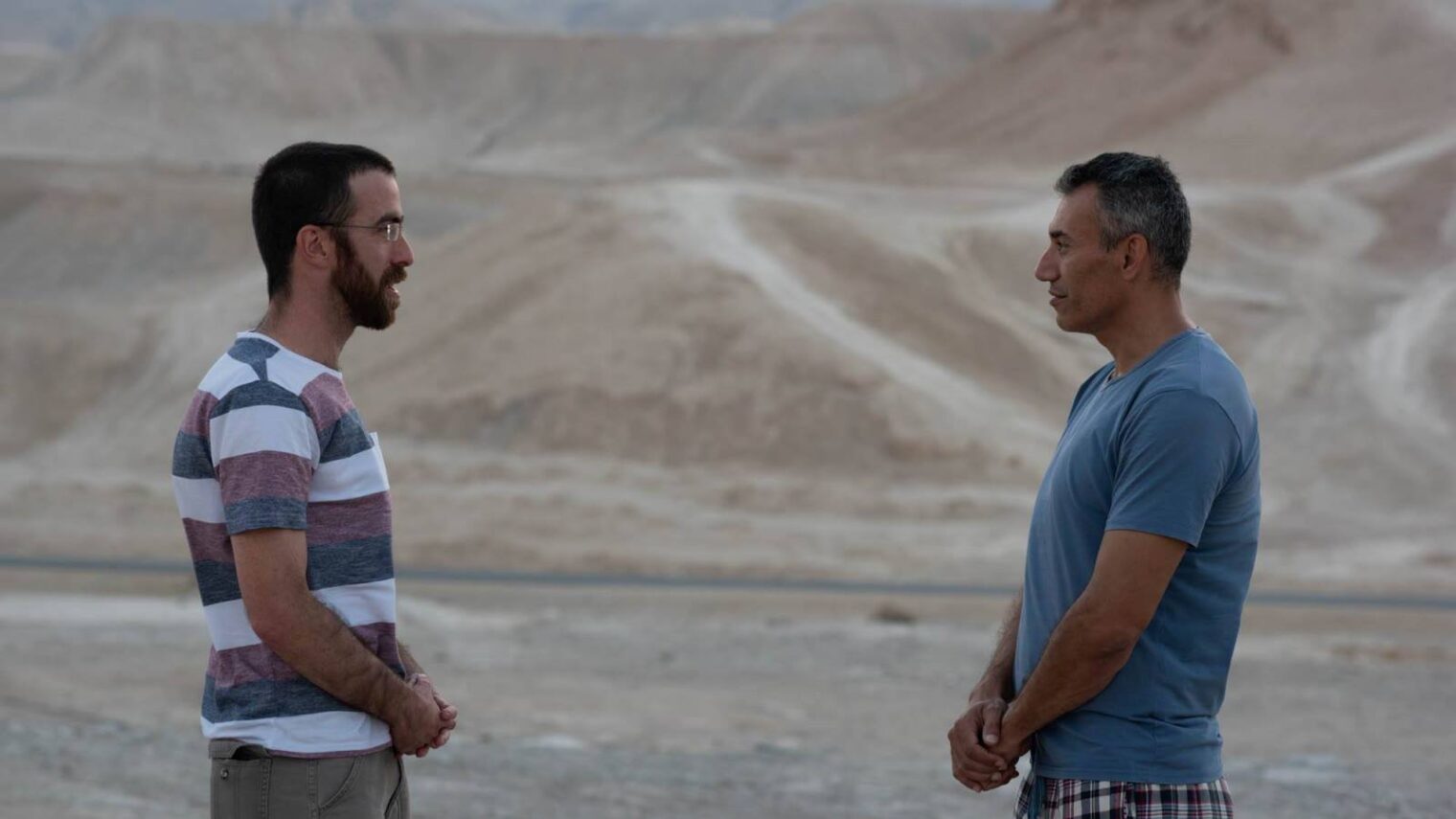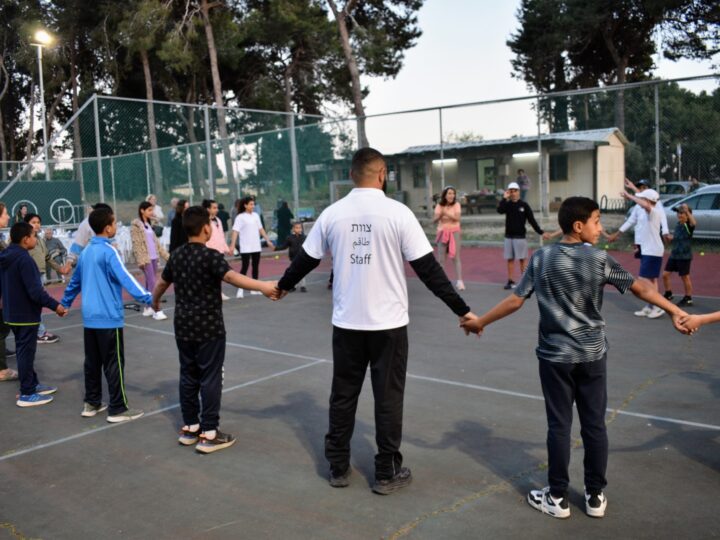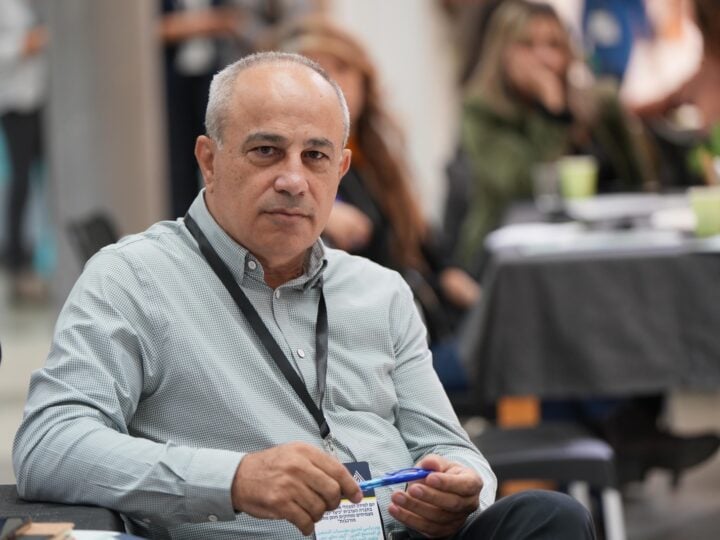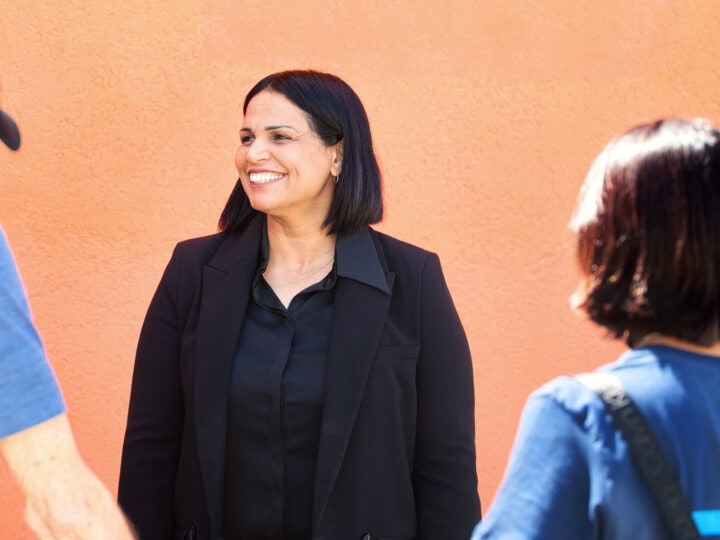On November 1, 2018, the Interfaith Encounter Association inaugurated its 100th dialogue group in Israel. This wasn’t headline news, but for founder and executive director Yehuda Stolov, it was another stepping stone on the path to peace.
The IEA is one of several organizations facilitating dialogue among people from all sides of the Arab-Israeli conflict.
Some others are The HOME, Tiyul-Rihla-Trip, Kids4Peace, Change Agents, Middle East Peace (MEPeace), Parents Circle Families Forum and Together Beyond Words.
Here we take a closer look at five of these initiatives, their accomplishments and future goals.
Interfaith Encounter Association
Over the past 17 years, Yehuda Stolov’s award-winning organization has sponsored 3,000 meetings from north to south involving 4,000 Jewish, Muslim and Christian participants trying to push past prejudice and reach a place of mutual respect and friendship.
In 2017, the IEA oversaw a record 328 encounters and events.
“On a regular basis we have 1,300 participants plus 2,000 who come every year to one or two encounters. Among our groups are one with settlers and Palestinians, and — maybe most surprising — a group in Hebron,”
Stolov tells ISRAEL21c. “Each group is led by a coordinating team of one person representing each religion of the participants.”
IEA participants include, among others, rabbis, sheikhs, midwives, yeshiva students, Palestinian villagers, ultra-Orthodox Jews, medical students, mothers and daughters, and college students. Some groups focus on activities around prayer, music or literature.
“Each meeting has a specific topic and it’s nearly never political unless they really want to discuss that after they are well established and feel comfortable with one another,” Stolov says.
“People connect and overcome prejudices and stereotypes and replace them with real encounters with real people. We’ve had several academic studies that examined the effectiveness of our work and they all concluded that it is happening.”
Stolov recalls a skeptical Jewish man in Jerusalem whose friend, an IEF group coordinator, persuaded him to come to an IEF meeting at a hotel on the outskirts of Beit Jala, an Arab town in the Bethlehem region bordering Jerusalem.
“Before reaching the hotel they passed some Arab houses, and the guy stopped his car and said to the coordinator, ‘Give me one good reason I shouldn’t turn around and go home.’ And his friend replied, ‘If you continue, then you can say that what you think about them is correct.’ So he drove on, and when he met them, especially the Muslim coordinator, he was so impressed that he never stopped coming.”
Participation sometimes wanes depending on current events, Stolov says, but overall the numbers are increasing.
“I see more interest and growing understanding of the fact that this is the way to make a real contribution to building peace and community. And if our process is what works, we need many more people — maybe tens or hundreds of thousands — and then I think you would see the change on a macro level,” says Stolov.
Tiyul-Rihla-Trip
Yovav Kalifon (Israeli), Ahmed M.A. Helou (Palestinian) and Aaron P. Taylor (American) run this seven-year-old binational educational initiative under the aegis of the US-based Center for Emerging Futures.
Tiyul means trip in Hebrew and rihla means trip in Arabic.
Kalifon cofounded the project because he felt typical dialogue groups don’t help each side truly understand the other’s narrative and point of view.
Filling a tour bus with an equal number of Jewish and Arab participants and taking them to contemporary and ancient sites of historical significance over the millennia, Tiyul-Rihla-Trip provides a unique framework for learning about each other from each other.
“Our project aims to show that we don’t know the ABCs about each other and we are totally misunderstanding each other,” Kalifon tells ISRAEL21c.
“If you don’t know the identities of the two sides, how can you say you have a solution for the conflict or even know what the conflict is about — land, religion, nationality? Our project invites you to learn the identity of the other side and convey your own identity in the right words.”
Tiyul-Rihla-Trip has so far sponsored 26 trips. Some target specific populations, such as women or licensed tour guides. All of them draw from a wide spectrum, from Gaza residents to Jewish settlers.
“We cannot be tagged as right wing or left wing and that makes the conversation more interesting,” says Kalifon, who has a master’s in theoretical physics and believes in the power of clear definitions and terminology.
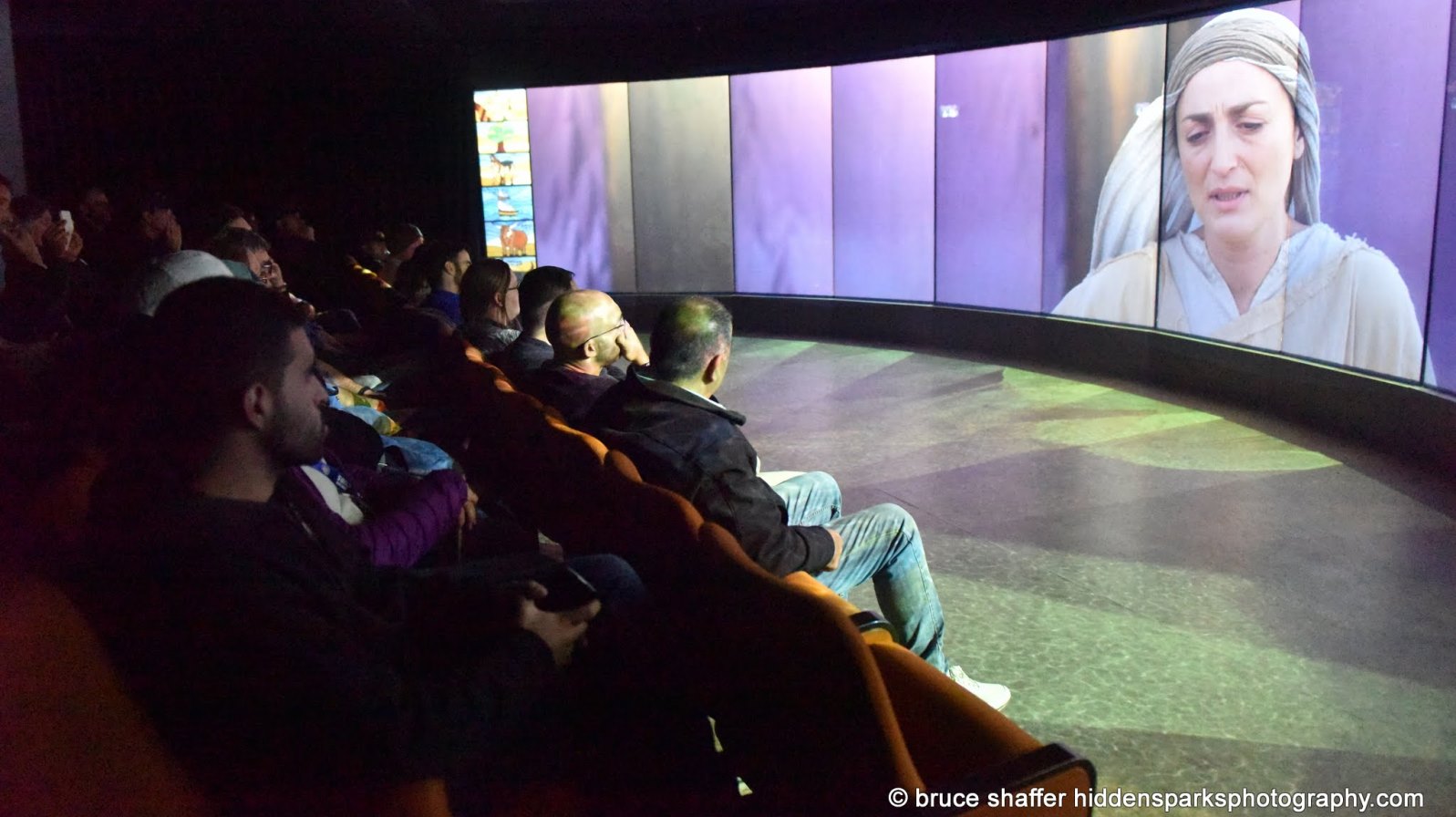
The trips aren’t instant problem-solvers, rather triggers for bringing up and facing difficult issues.
“I think you won’t convince anyone of anything. If you bring intelligent people on the trip, they won’t admit they lack in knowledge or experience or are overly polite so they won’t correct others’ statements,” Kalifon says.
“People walk away from our trips with shocking observations, even outrage. They reflect and process, and then some come back five or six times. They observe things they didn’t expect and are a bit more humble. They see things on the other side they didn’t see before and feel the need to learn more about their own history. A lot of self-inspection goes into this.”
The HOME
“We are not afraid of clashes,” says Inon Dan Kehati, 38, founder of this bootstrapped effort to gather residents of Jewish and Arab communities in the Gush Etzion-Bethlehem-Jerusalem area for monthly or bimonthly dialogues held on neutral ground at a café.
Everyone gets three minutes to introduce him or herself before the talks start. Depending on a system of friends bringing friends, The HOME attracts right-wingers and left-wingers on both sides.
“We don’t say you have to agree; just come if you want and say whatever you want and I’ll say whatever I want and everybody must listen,” Kehati tells ISRAEL21c.
The HOME also sponsors public discussions where the stage is given to people such as lawmakers, generals or aspiring activists with something to say about past history and identity, present reality, and future alternative solutions.
“Half of the time is for questions and answers so it’s not a boring lecture,” says Kehati. “It creates emotional tension and participation.”
Beyond the discussions, The HOME sponsors Cleaning the Hate days where Israelis and Palestinians work together to clean up litter.
“This is a social-action initiative among people who are ordinarily rivals or enemies,” says Kehati.
“If we all say this is the Holy Land and our home, we need to keep it clean and treat it as such. An activity for a cause that is greater than all of us, either for the environment or for love of the homeland, is how we create the kind of atmosphere where people of rival identities or narratives can do something together and then can go have coffee. When people do something together physically it connects them spiritually.”
Kehati founded The HOME in 2014 with a single post on Facebook, during a summer when three Jewish teens from Gush Etzion were kidnapped and murdered by Palestinian terrorists, an Arab teen was murdered by Jewish terrorists, and war broke out between Israel and Hamas in Gaza.
“My first Palestinian partner contacted me and the process grew from there,” says Kehati. “My goal is to create connections between residents from a wide range of the identities, opinions and beliefs.”
He has seen unlikely friendships form at The HOME, such as a Palestinian with family ties to Hamas becoming friends with a Jewish terror survivor. “I see strong connections between people who come from a background of belief, whether Jewish and Muslim.”
Change Agents
Change Agents is a program of the School for Peace, established in 1979 in Wahat al-Salam-Neve Shalom, a Jewish and Arab village 30 kilometers from Jerusalem. Some 65,000 people have participated in School for Peace workshops and courses over nearly four decades.
The school’s director, Nava Sonnenschein, explains that the School for Peace began training facilitators for groups in conflict from places including Ireland, Kosovo, the United States, England, Cyprus, South Africa and Costa Rica.
The school devised a unique method that “puts the conflict in the center of the dialogue,” a method often studied and written about by researchers from Israel and elsewhere.
“We saw that the training really made them change agents in their society. So we thought, why not train other professionals — Jewish and Arab, Israeli and Palestinian — whose professions are connected to the conflict?”
Lawyers, mental-health professionals, urban planners, architects, environmentalists, teachers, journalists, physicians and political leaders are among those professions. Led by Sonnenschein and Harb Amara since 2006, the Change Agents course meets once a month for 18 months and includes both deep dialogue and study tours.
“There is a formative change people feel inside concerning their awareness and relations between the two sides,” Sonnenschein tells ISRAEL21c. “Then we work with them to help them initiate projects as change agents.”
Among resulting initiatives are lawyers who became active in human-rights cases, urban planners who created a mixed forum to advocate for fair land allocation and housing policies, mental-health professionals who ran conferences on issues relating to the conflict, and teachers who created a program to expose their students to literature of “the other.”
Parents Circle Families Forum
PFCC is made up of Jewish and Arab families who lost a relative to the conflict.
“We have a wide range of activities designed to put cracks in walls of hatred and fear,” Executive Director Rami Elhanan tells ISRAEL21c.
For more than two decades, PCFF has sponsored almost 7,000 dialogues attended by more than 200,000 youth and adults in Israeli high schools and Palestinian youth clubs and homes.
Each meeting is led by an Israeli and a Palestinian who tell their personal stories of bereavement and explain their choice to engage in dialogue instead of revenge.
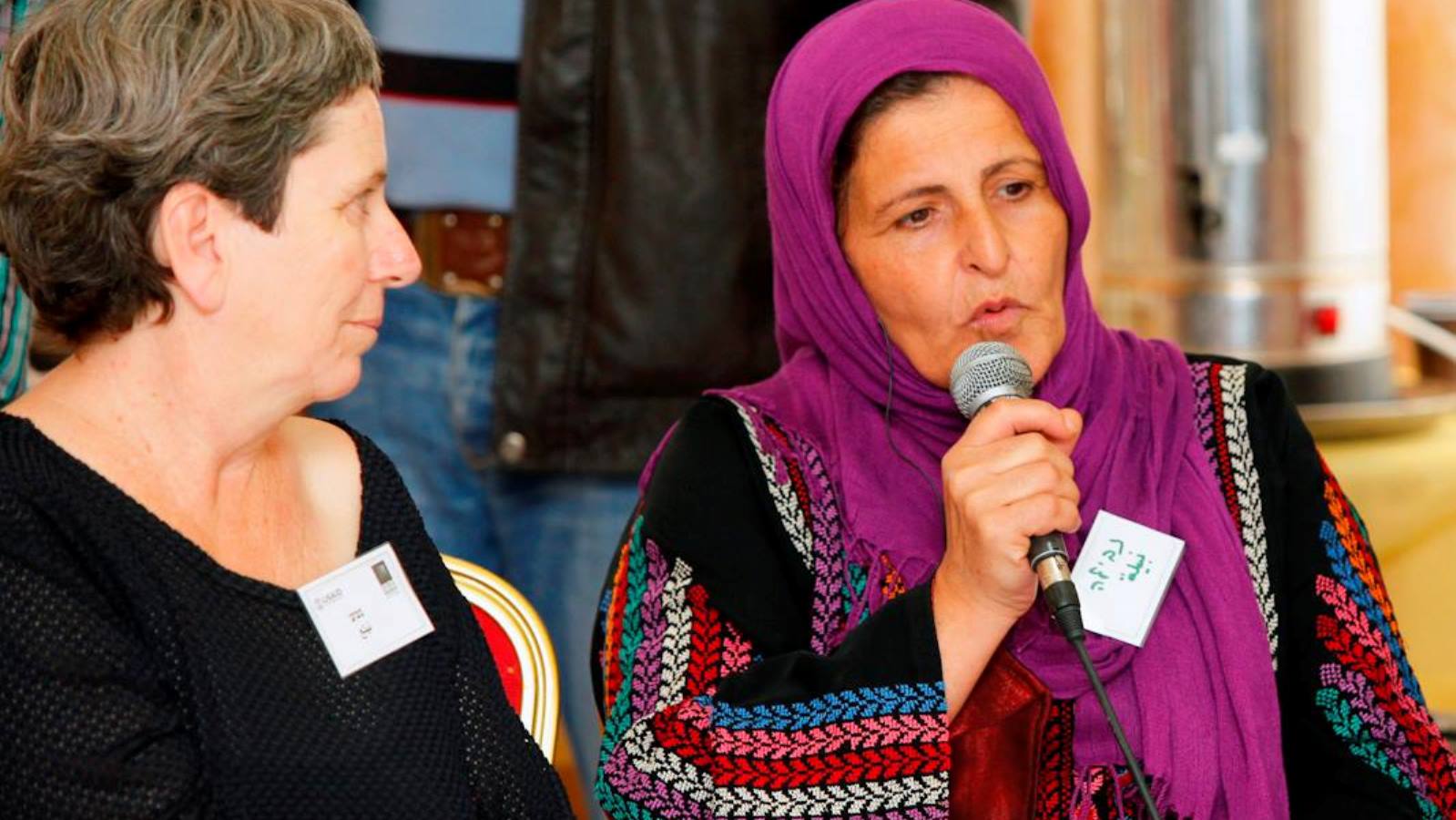
“No one can listen to our stories and stay the same,” says Elhanan, whose 14-year-old daughter was killed in a 1997 suicide bombing.
“For most of these kids it’s the first time they’ve ever seen an Israeli and Palestinian calling each other ‘brother’ and not trying to compare whose pain is bigger and who is to blame.”
One of Elhanan’s PCFF “brothers” is Bassam Aramin, who was jailed from 1985 to 1992 for throwing a hand-grenade at a group of Israelis, and whose 10-year-old daughter was killed in 2007 by a rubber bullet shot by an Israeli border policeman.
PCFF’s Parallel Narrative Project has brought together about 1,000 people from targeted populations over the past decade — including groups of lawyers, journalists, social workers, doctors and bereaved families from Israeli and Palestinian society — for eight weekend meetings and field trips aimed at getting to the root of each side’s pain.
“On December 15, we’ll have a conference of alumni of the Narrative Project. We’ve had 40 of these groups so far,” says Elhanan. “The alumni become our ambassadors on the ground.”
There’s also a PFCC summer camp and a group of young ambassadors whose photographs are going on display in Tichonet High School in Tel Aviv.
“The essence of all activities is to raise the curtains and enable people to look at the humanity of both sides and the ability of people who have every reason to hate each other to seek a new way of reconciliation and creating something out of our pain,” says Elhanan.




